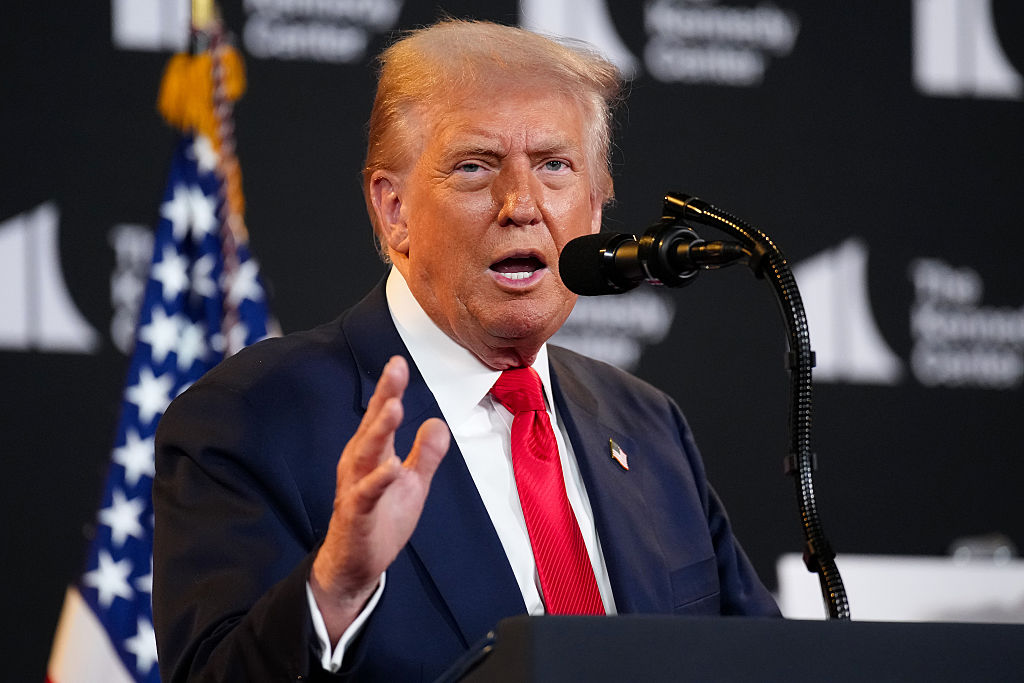President Donald J. Trump, burned in 2020 at the height of Covid by some states’ shenanigans ranging from rule changes regarding absentee voting to registration requirements, is now on a quest to reform mail-in voting and traditional ballot tabulation machines. On August 18, the President posted the following missive on Truth Social:
“I am going to lead a movement to get rid of MAIL-IN BALLOTS, and also, while we’re at it, Highly ‘Inaccurate,’ Very Expensive, and Seriously Controversial VOTING MACHINES, which cost Ten Times more than accurate and sophisticated Watermark Paper, which is faster, and leaves NO DOUBT, at the end of the evening, as to who WON, and who LOST, the Election.”
Some of the voting practices the President has critiqued are unusual, to say the least. For example, eight states comprising nearly 20 percent of the U.S. population automatically send ballots to every registered voter, alive and sometimes dead. It appears that only Switzerland follows a similar practice. Scholars have highlighted the dangers of robo-voting by means of the unusually unreliable United States Postal Service. Even The New York Times, the flagship of the liberal press, declared that “votes cast by mail are less likely to be counted, more likely to be compromised, and more likely to be contested than those cast in a voting booth.” Ending mail-in voting altogether would be a heavy lift, given that nearly one-third of ballots cast in 2024 were cast by mail; in 2020, mail ballots accounted for 43 percent of votes cast.
Moreover, fourteen states and Washington, D.C. have no voter identification requirements. This is a vulnerability highly susceptible to manipulation. About 1200 cases of voter fraud have been documented. The Supreme Court recounted this unfortunate history while upholding Indiana’s state photo identification laws:
“It remains true, however, that flagrant examples of [voter] fraud in other parts of the country have been documented throughout this Nation’s history by respected historians and journalists, that occasional examples have surfaced in recent years, and that Indiana’s own experience with fraudulent voting in the 2003 Democratic primary for East Chicago Mayor – though perpetrated using absentee ballots and not in-person fraud – demonstrate that not only is the risk of voter fraud real but that it could affect the outcome of a close election.”
On Truth Social, the President went further and questioned the role of states in federal elections:
“Remember, the States are merely an ‘agent’ for the Federal Government in counting and tabulating the votes. They must do what the Federal Government, as represented by the President of the United States, tells them, FOR THE GOOD OF OUR COUNTRY, to do.”
In fact, Article I, Section 4 of the United States Constitution grants states the authority to prescribe the time, place and manner of holding elections for most federal elections, although Congress may amend these rules, and has, repeatedly over the years. This joint state and federal authority is exercised under the watchful eye of the federal executive branch, of which the President is the head. Violations of federal voting laws may be prosecuted by the U.S. Justice Department. So it takes a village, and oh so many village chiefs, to enforce the relevant voting laws across the country.
The power to vote is a precious and fundamental right. For millions of Americans, it is a freedom bought by blood. It ought not be diluted by fraud or lightly revoked by disenfranchisement. The challenge for the President and both major political parties is to find the appropriate balance between integrity and access. We all are responsible for maintaining one of our nation’s defining values in retaining lawful and open access to the ballot box, thereby ensuring the people’s enduring right to choose their own government.
Can Trump end mail-in voting?
The President is on a quest to reform mail-in voting and traditional ballot tabulation machines

President Donald Trump (Getty)
President Donald J. Trump, burned in 2020 at the height of Covid by some states’ shenanigans ranging from rule changes regarding absentee voting to registration requirements, is now on a quest to reform mail-in voting and traditional ballot tabulation machines. On August 18, the President posted the following missive on Truth Social: “I am going to lead a movement to get rid of MAIL-IN BALLOTS, and also, while we’re at it, Highly ‘Inaccurate,’ Very Expensive, and Seriously Controversial VOTING MACHINES, which cost Ten Times more than accurate and sophisticated Watermark Paper, which is faster, and…

























Leave a Reply